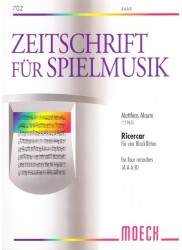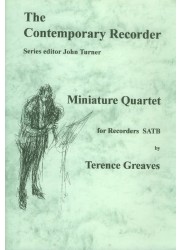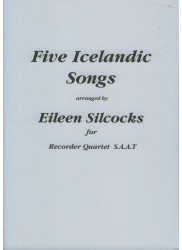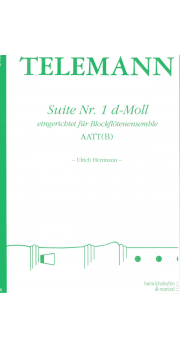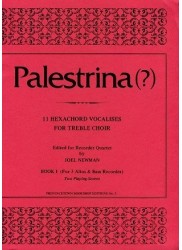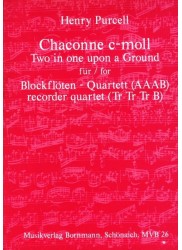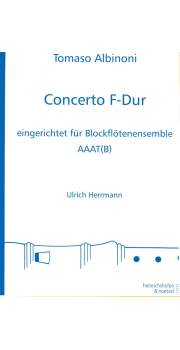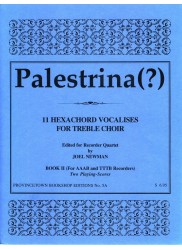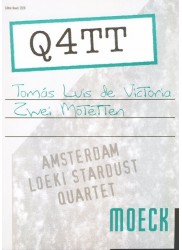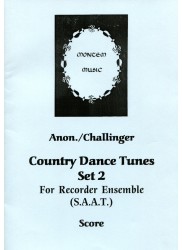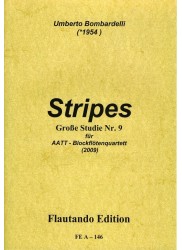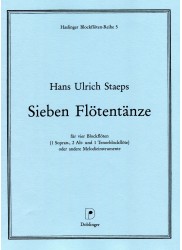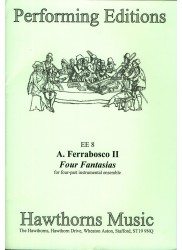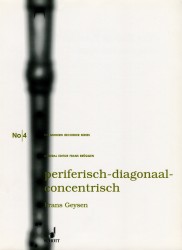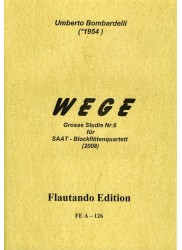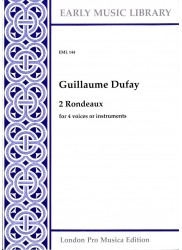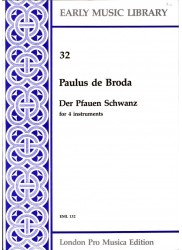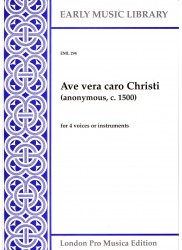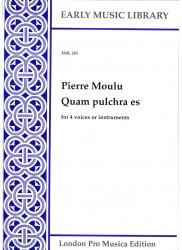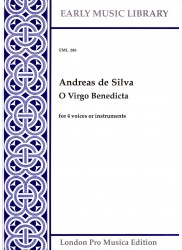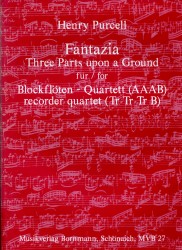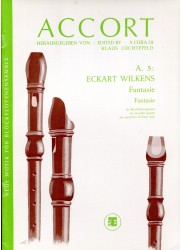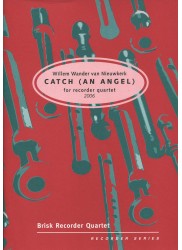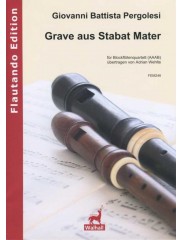No products
Prices are tax included
Goldilocks
Composer: Eccles - Lance
Instrumentation: 2 Trebles - 2 Basses
Period/genre: Australian Contemporary
Grade: Moderate
More info
*Contemporary Piece* in three movements. Fun incidental music to the fairytale. Some interesting chromaticism.
1. Through the Forest to the Bears House
2. A Short Sleep, with Bad Dreams
3. Discovery, Struggle, Escape
_Score 12 pp. 4 x Parts 4 pp._
REVIEWS OF TEN COMPOSITIONS BY LANCE ECCLES
(Orpheus Music, orpheusmusic.com.au).
For 20 years, Lance Eccles was a member of the Reluctant Consort, a group based in Sydney, Australia. Most of his compositions have been written for this consort or for meetings of the Sydney Society of Recorder Players. Eccles is retired from his position as a senior lecturer in Chinese at Macquarie University. His current web site states that he is an "honorary senior research fellow in the Department of Ancient History at Macquaie University in Sydney, Australia"; see www.ocs.mq.edu.au/~leccles.
There are generalities that apply to many of the pieces reviewed here. The reader will note that all of the pieces have colorful programmatic titles. Sometimes, the music des indeed match the literary ideas of the titles. In this reviewer's opinion, there are other cases (as specifically noted below) where the literary images of the title and the actual music do not seem to connect. It may be, in some cases, that some words in these titles simply have other connotations in Australian culture. In any case, a simple solution for this problem would be for the publications to include information regarding the literary ideas behind the titles and how these ideas connect to the music.
Concerning his style, rhythms are straightforward and on the easier side, oftentimes using light syncopation. For the most part, the voices are very active, with a common exception being the bass lines. It is rare for the upper voices to hold any note longer than a halfnote, sometimes even in the final measures. Eccles has a remarkable ability to have voices moving every half beat for extended passages. He does a great job keeping his voices in lively contrary motion, but he also uses parallel motion to great effect. He likes abrupt endings.
Some of his music uses lush Romantic harmonies; some is more contemporary and mildly dissonant or even sharply dissonant. Eccles is equally at home in all these harmonic idioms. To enjoy hearing and playing Eccles's music, you will need a taste for contemporary harmony. Having said that the rhythms are easy, I should also mention that most of his music is quite chromatic. If your groups are interested in playing these pieces, get out the chromatic scales; you will need to know all chromatic fingerings.
Eccles likes to use phrase modulations to distantly-related keys. There are no avantgarde techniques in any of these pieces, beyond simple flutter-tonguing. If I had to rate them for difficulty on a scale of one to five, most would rate a three with exceptions noted below.
Regarding prices listed, Orpheus Music will remove taxes from the total for non- Australian customers. Prices vary day to day. These pieces are listed with two purchase options: the published version (in hard copy with the well-known purple and orange covers) and the .pdf instantly-downloadable version from orpheusmusic.com.au.
OMP178 Lance Eccles GOLDILOCKS.
Goldilocks is another work that is more difficult, requiring advanced intermediate players. "Through the Forest to the Bears' House" contains dissonant harmony. It does paint a good picture of Goldilocks skipping through the woods. The melodic materials skip from instrument to instrument, sometimes in dense stretto. It is very contrapuntal, except for a section where the top three parts come together in parallel rhythm.
"A Short Sleep, with Bad Dreams" sounds much like its title, opening with a very eerie atmosphere of dissonant slurs between the two bass recorders. Interesting syncopated passages pass between the voices, and there is a lively 16th-note section for bass recorder.
The final "Discovery, Struggle, Escape" is loosely in ABABA form. Its A sections feature a bouncy melody in the top alto part. Later, the second alto part plays an inversion of that melody. There are full measures of parallel seconds between adjacent voices and measures of tone clusters among all four voices. The B sections, predominately in 5/8 (with some internal meter changes), build momentum before returning to the A section's melody.
Of the Eccles compositions I have studied thus far, this is the one where I feel the music most fits the mood of the titles. Players will need to be able to play skips of ninths and twelfths, plus heavily chromatic lines.
Susan Groskreutz, American Recorder, January 2011.
30 other products in the same category:
Reference: OMP185
Brand: Orpheus Music
Suite for Recorder Quartet Op 116
Composer: Maddox - Richard Peter Instrumentation: Descant - 2 Trebles -...
In StockReference: OMP157
Brand: Orpheus Music
Monet's Bridge
Composer: Pye - David Instrumentation: 2 Trebles - 2 Tenors Period/genre:...
In StockReference: OMP157.pdf
Brand: Orpheus Music
Monet's Bridge
PLEASE NOTE - DOWNLOADABLE PDF VERSION Composer: Pye - David...
$20.50 -20%In StockReference: ZFS806
Brand: Moeck
Kingfishers
Composer: Termohlen - Nicola Arranger: Paul Leenhouts Instrumentation: 2...
In StockReference: ZFS813
Brand: Moeck
Wanzenwanderung [Travelling Bugs]
Composer: Termohlen - Nicola Instrumentation: 2 Trebles - 2 Tenors...
In StockReference: PJT001
Brand: Peacock Press
Miniature Quartet
Composer: Greaves - Terence Instrumentation: Descant - 2 Trebles - Tenor...
In StockReference: P047
Brand: Peacock Press
Five Icelandic Folk Songs
Composer: Various Arranger: Silcocks - Eileen Instrumentation: Descant - 2...
In StockReference: N3778
Brand: Noetzel
Suite No 1 in d minor
Composer: Telemann - Georg Philipp Arranger: Ulrich Herrmann...
In StockReference: PBE05
Brand: Provincetown Bookshop
11 Hexachord Vocalises, Book I
Composer: Palestrina - G.P. (?) Arranger: Joel Newman Instrumentation: 3...
In StockReference: MVB026
Brand: Bornmann
Chaconne C minor Two in One upon a ground
Composer: Purcell - Henry Instrumentation: 3 Trebles - Bass Period/genre:...
In StockReference: N3776
Brand: Noetzel
Concerto in F Major
Composer: Albinoni - Tomaso Arranger: Ulrich Herrmann Instrumentation: 3...
In StockReference: PBE005A
Brand: Provincetown Bookshop
11 Hexachord Vocalises, Book II
Composer: Palestrina - G.P.(?) Arranger: Joel Newman Instrumentation: 3...
In StockReference: M2828
Brand: Moeck
Two Motets
Composer: Victoria - Tomas Luis de Arranger: Daniel Bruggen...
In StockReference: AC06
Brand: Montem Music
Country Dance Tunes Set 2
Composer: Challinger - AndrewInstrumentation: Descant - 2 Trebles -...
In StockReference: FEA146
Brand: Flautando Edition
Stripes, Grosse Studie No 9
Composer: Bombardelli - UmbertoInstrumentation: 2 Trebles - 2...
In StockReference: DO HBR5
Brand: Doblinger
Sieben Flöetentänze
Composer: Staeps - Hans Ulrich Instrumentation: Descant - 2 Trebles - Tenor...
In StockReference: EE08
Brand: Hawthorns
Four Four-Part Fantasias
Composer: Ferrabosco - Alfonso Instrumentation: Descant - 2 Trebles - Tenor...
In StockReference: TMR4
Brand: Schott
Peripheral-Diagonal-Concentric
Composer: Geysen - Frans Arranger: Frans Bruggen Instrumentation: 2 Trebles...
In StockReference: FEA126
Brand: Flautando Edition
Wege
Composer: Bombardelli - UmbertoInstrumentation: Descant - 2 Trebles -...
In StockReference: EML144
Brand: Early Music Library
2 Rondeaux
Composer: Dufay - GuillaumeInstrumentation: 2 Trebles - 2 TenorsPeriod/genre:...
In StockReference: EML156
Brand: Early Music Library
2 Rondeaux
Composer: De Machaut - GuillaumeInstrumentation: 2 Trebles - 2...
In StockReference: EML132
Brand: Early Music Library
Der Pfauen Schwanz
Composer: De Broda - PaulusInstrumentation: Descant - 2 Trebles -...
In StockReference: EML294
Brand: Early Music Library
Ave vera caro Christi
Composer: AnonymousInstrumentation: 2 Descants - Treble - Tenor (or Descant -...
In StockReference: EML283
Brand: Early Music Library
Quam pulchra es
Composer: Moulu - PierreInstrumentation: 3 Trebles - BassPeriod/genre:...
In StockReference: EML288
Brand: Early Music Library
O virgo benedicta
Composer: Silva - Andreas deInstrumentation: 3 Trebles - Bass (or Treble - 3...
In StockReference: MVB027
Brand: Musicverlag Bornmann, Schonaich
Fantazia Three Parts upon a Ground
Composer: Purcell - Henry Arranger: Johannes Bornmann Instrumentation: 3...
In StockReference: 2078PJT
Brand: PJ Tonger
Fantasia (1978)
Composer: Wilkens - Eckart Arranger: Klaus Luchtefeld Instrumentation:...
In StockReference: AMP1325
Brand: Ascolta
Catch (an Angel)
Composer: Nieuwkerk - Willem Wander van Instrumentation: Descant - 2 Trebles...
In StockReference: FEM246
Brand: Edition Walhall
Grave aus Stabat Mater
Composer: Pergolesi - Giovanni Arranger: Adrian Wehlte Instrumentation: 3...
In Stock

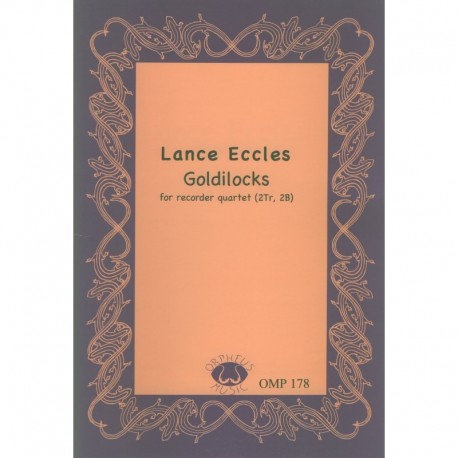



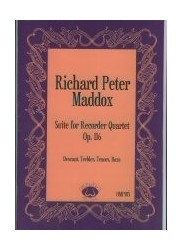
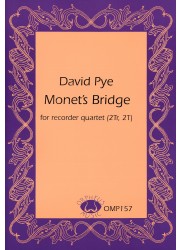

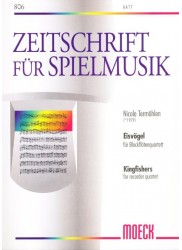
![Wanzenwanderung [Travelling Bugs]](https://orpheusmusic.com.au/5573-home_default/wanzenwanderung-travelling-bugs-.jpg)
